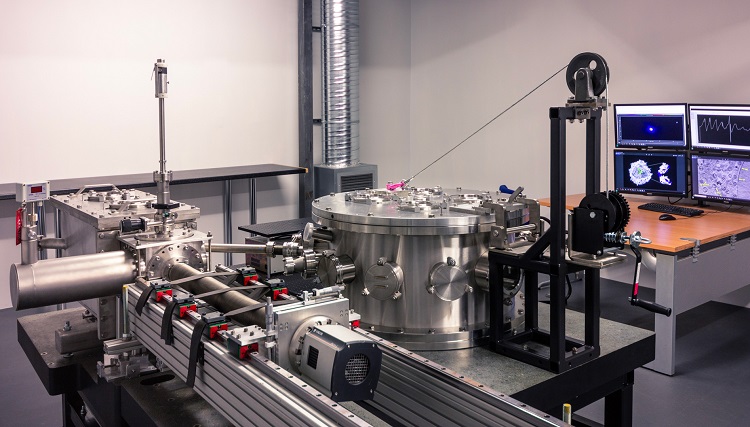UCD spin-out SiriusXT and researchers awarded €2.35m to examine virus pathways
Posted 14 October, 2020

A UCD spin-out and two researchers at the University have received €2.35 million to examine the disease pathways of viruses.
SiriusXT alongside (opens in a new window)Professor Dimitri Scholz, Director of Biological Imaging at the UCD Conway Institute and (opens in a new window)Assistant Professor Nicola Fletcher, from the UCD School of Veterinary Medicine, were awarded the funding through Horizon 2020, the EU's research and innovation programme.
The company and researchers are partners in the international project CoCID which aims to provide insights into the cellular origins of viral diseases including hepatitis C, hepatitis E, herpesvirus and SARS-CoV-2, the coronavirus that causes COVID-19.
This goal is being aided through the use of SiriusXT's novel soft x-ray microscope, which allows researchers to illuminate whole single cells or tissue samples and produce 3D images of their internal structures.
Changes in a cell's shape and its internal organelle are important influencers on the cell signalling mechanisms that underpin the causes of diseases.
For this reason, 3D imaging of the internal structure plays an important role in helping scientists to understand diseases, and the only technology that can image through the whole substructure of an intact cell is low energy x-ray microscopy.
“Soft x-ray microscopy is an extremely exciting, potentially game changing technique that will allow us to visualise virally infected cells in exquisite detail,” said Assistant Professor Nicola Fletcher.
“We will investigate the mechanisms by which hepatitis E virus, an emerging infectious disease that is transmitted to humans from infected animals, infects cells from different species. The ultimate aim is to explore new treatment options for this important viral infection.”
Professor William Gallagher, Director, UCD Conway Institute added: “The addition of this innovative imaging modality to the existing suite of instruments in the core imaging facility is very welcome.
“Not only does it provide researchers internationally with unique insights to disease pathways, particularly in relation to virus-host interactions, but allows correlation of these images with fluorescence and electron microscopes available in the facility.”
The illumination required for a soft x-ray microscope is currently only available at four football-stadium sized facilities, called synchrotrons, and scientists have to wait up to 12 months for access.
However based on research carried out at the UCD School of Physics over many years, SiriusXT - co-founded by Dr Kenneth Fahy, Dr Paul Sheridan, (opens in a new window)Dr Fergal O’Reilly and Tony McEnroe - has developed and patented a miniaturised soft x-ray source, allowing the company to build the first commercial, lab-scale, soft x-ray microscope.
Tony McEnroe, SiriusXT CEO, said: “This project award not only helps fund the advancement of our SXT-100 microscope, it also allows SiriusXT to collaborate closely with European leaders in virology research to demonstrate the benefits of soft x-ray microscopy in progressing their understanding of pathogen infection pathways.”
Stephen O’Reilly, National Contact Point for the Horizon 2020 ICT programme in Enterprise Ireland, added: “CoCID is a great win for Ireland and continues the excellent performance of Irish researchers and innovators who punch well above their weight when it comes to photonics in Horizon 2020 as €2.35m of this €5.67m project is going to SiriusXT and UCD.
“SiriusXT is an excellent example of an Enterprise Ireland HPSU spin-out that is engaging with the national and European research systems to support their scaling strategy.”
In June, the UCD spin-out received €4.5 million in EU funding to pilot its soft x-ray microscope at leading virology and disease research labs focused on coronavirus research.
By: David Kearns, Digital Journalist / Media Officer, UCD University Relations (with materials from Micéal Whelan, UCD Research and Innovation)






